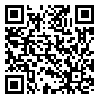Volume 23, Issue 4 (Winter 2023)
jrehab 2023, 23(4): 584-601 |
Back to browse issues page
Download citation:
BibTeX | RIS | EndNote | Medlars | ProCite | Reference Manager | RefWorks
Send citation to:



BibTeX | RIS | EndNote | Medlars | ProCite | Reference Manager | RefWorks
Send citation to:
Soghrati A, Arsalani N, Mohamadi S, Vahedi M, Ajami H. The Effect of Rehabilitation Nursing Interventions on the Quality of Life in Women With Neurogenic Bladder Dysfunction. jrehab 2023; 23 (4) :584-601
URL: http://rehabilitationj.uswr.ac.ir/article-1-3061-en.html
URL: http://rehabilitationj.uswr.ac.ir/article-1-3061-en.html
1- Department of Nursing, School of Rehabilitation Sciences, University of Social Welfare and Rehabilitation Sciences, Tehran, Iran.
2- Department of Nursing, Iranian Research Center of Aging, School of Rehabilitation Sciences, University of Social Welfare and Rehabilitation Sciences, Tehran, Iran. ,na.arsalani@uswr.ac.ir
3- Department of Nursing, Rofeideh Rehabilitation Hospital, School of Rehabilitation Sciences, University of Social Welfare and Rehabilitation Sciences,Tehran, Iran.
4- Department of Biostatistics and Epidemiology, Iranian Research Center of Aging, School of Rehabilitation Sciences, University of Social Welfare and Rehabilitation Sciences, Tehran, Iran.
5- Rofeideh Rehabilitation Hospital, University of Social Welfare and Rehabilitation Sciences, Tehran, Iran.
2- Department of Nursing, Iranian Research Center of Aging, School of Rehabilitation Sciences, University of Social Welfare and Rehabilitation Sciences, Tehran, Iran. ,
3- Department of Nursing, Rofeideh Rehabilitation Hospital, School of Rehabilitation Sciences, University of Social Welfare and Rehabilitation Sciences,Tehran, Iran.
4- Department of Biostatistics and Epidemiology, Iranian Research Center of Aging, School of Rehabilitation Sciences, University of Social Welfare and Rehabilitation Sciences, Tehran, Iran.
5- Rofeideh Rehabilitation Hospital, University of Social Welfare and Rehabilitation Sciences, Tehran, Iran.
Abstract: (4930 Views)
Objective: Neurogenic bladder (NB) is one of the most common causes of urinary incontinence, and its many long-term problems negatively affect patients' quality of life, especially women, due to a lack of social roles. Due to the chronic nature of this disorder, the implementation of rehabilitation nursing interventions to improve the quality of life of these patients has been recommended. Therefore, this study aimed to evaluate the effectiveness of multidimensional rehabilitation nursing intervention of urinary incontinence on the quality of life of young and middle-aged women with neurogenic bladder.
Materials & Methods: The present research was a quasi-experimental study with a pre-test-post-test design that was conducted in Rofeideh Rehabilitation Hospital, Tehran, Iran, in 2021. Data were collected from 30 young and middle-aged women aged 18 to 60 years admitted with neurogenic bladder. The samples completed the demographic questionnaire and incontinence quality of life questionnaire (I-QOL) before and 6 weeks after the intervention during follow-up. Multidimensional rehabilitation nursing intervention of urinary incontinence included two-part training sessions: 1) clean intermittent catheterization and 2) behavioral therapy (Time voiding, delaying urination, diet, and medication) in 7 30-minutes sessions of training conducted daily and individually face-to-face in the first week and then a follow-up of patients in 5 weeks (second, third, fourth, fifth, and sixth weeks), one session per week in the form of virtual classes and online video calls in WhatsApp application. The collected data were analyzed in SPSS software version 25 using one-way ANOVA and paired t-test at a significance level of 0.05.
Results: Most participants were 20-30 years old (30%) and married (53.3%). Before and after the intervention, the quality of life of patients with neurogenic bladder disorder increased from 46.46±11.07 to 66.23±9.46, which was statistically significant (t=14.20, P<0.0001). Also, psychosocial impacts due to the disease were reduced based on one of the three subscales of the quality of life questionnaire. In addition, quality of life was significantly lower in younger, unemployed, single, spinal cord injury, body odor, and people with a neurogenic bladder disease diagnosis period of less than one year (P<0001).
Conclusion: According to our findings, clean intermittent catheterization and behavioral therapy could significantly improve patient's quality of life with NB. Therefore, it is recommended to investigate the long-term effectiveness of this intervention.
Materials & Methods: The present research was a quasi-experimental study with a pre-test-post-test design that was conducted in Rofeideh Rehabilitation Hospital, Tehran, Iran, in 2021. Data were collected from 30 young and middle-aged women aged 18 to 60 years admitted with neurogenic bladder. The samples completed the demographic questionnaire and incontinence quality of life questionnaire (I-QOL) before and 6 weeks after the intervention during follow-up. Multidimensional rehabilitation nursing intervention of urinary incontinence included two-part training sessions: 1) clean intermittent catheterization and 2) behavioral therapy (Time voiding, delaying urination, diet, and medication) in 7 30-minutes sessions of training conducted daily and individually face-to-face in the first week and then a follow-up of patients in 5 weeks (second, third, fourth, fifth, and sixth weeks), one session per week in the form of virtual classes and online video calls in WhatsApp application. The collected data were analyzed in SPSS software version 25 using one-way ANOVA and paired t-test at a significance level of 0.05.
Results: Most participants were 20-30 years old (30%) and married (53.3%). Before and after the intervention, the quality of life of patients with neurogenic bladder disorder increased from 46.46±11.07 to 66.23±9.46, which was statistically significant (t=14.20, P<0.0001). Also, psychosocial impacts due to the disease were reduced based on one of the three subscales of the quality of life questionnaire. In addition, quality of life was significantly lower in younger, unemployed, single, spinal cord injury, body odor, and people with a neurogenic bladder disease diagnosis period of less than one year (P<0001).
Conclusion: According to our findings, clean intermittent catheterization and behavioral therapy could significantly improve patient's quality of life with NB. Therefore, it is recommended to investigate the long-term effectiveness of this intervention.
Type of Study: Original |
Subject:
Nursing
Received: 21/12/2021 | Accepted: 1/04/2022 | Published: 22/12/2022
Received: 21/12/2021 | Accepted: 1/04/2022 | Published: 22/12/2022
Send email to the article author
| Rights and permissions | |
 |
This work is licensed under a Creative Commons Attribution-NonCommercial 4.0 International License. |








